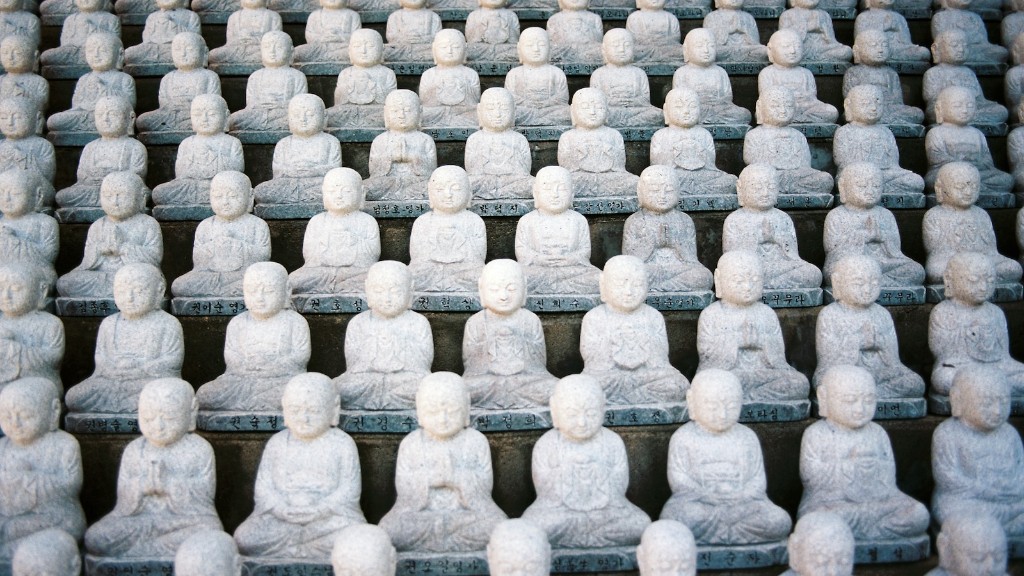Understanding the Beliefs Regarding God in Judaism
Judaism is a religion with a number of components at its core, including beliefs regarding God. There are numerous beliefs regarding God in the Jewish faith, and these shape Jewish attitudes and approaches to life. Believing in a single all-powerful God is not a belief exclusive to Judaism; many other religions, including Christianity and Islam, also believe in one God. What makes the Jewish belief system unique is the extent to which members of the faith place importance on this central belief, and the parameters in which they conceive of God’s power.
The Monotheistic Concept
Judaism is a monotheistic religion, meaning that its followers believe in a single all-powerful God. This God is referred to as Yahweh, and he is held as the one and only deity. He is also seen as a transcendent being, existing beyond the physical world and, to some extent, beyond human understanding. This notion of God as outside of the physical reality, being omnipotent and all-knowing, is a key element of the Jewish belief system and is reflected in many of the prayers and hymns of the faith.
God in the Hebrew Bible
A further element of the Jewish belief in God is the importance placed on the Hebrew Bible, also known as the Tanakh or Old Testament. This is a group of texts in which narratives, laws and satire about Judaism’s history and beliefs are linked to the concept of Yahweh. It serves as a source of inspiration and knowledge for believers, who find evidence of God’s power and wisdom in the stories within it. This is particularly evident in the ideas of the divine covenant, in which Yahweh is seen to have made promises to Mankind, and the idea of prophecy, in which it is believed that God can reveal future events.
Personal Connections with God
Believing that a single all-powerful God is responsible for life and the world also generates strong emotions and personal connections between followers and God, as is reflected in both formal worship and personal prayer. This is deeply embedded in Judaic culture, and it remains an essential aspect of identifying as a member of the faith. This is also linked to ideas of justice and the righteousness of God, which are seen as the primary determining factors in the structure of society and the maintenance of fair behaviour between believers.
The Image of God
The image of God in Judaism is somewhat mysterious. He is held as both unknowable and omnipotent, but he has also often been seen as a personal and protective presence in the lives of believers. This makes God a source of both respect and comfort, and these two qualities often combine to shape Jewish attitudes. He is not held as a physical being or as possessing human or physical qualities, rather his power is a spiritual force that is directly related to the life and wellbeing of humankind. This is why he is so integral to Jewish beliefs, as it is both his presence and his protection that binds the faith together.
God’s Relationship to Other Important Figures
God’s relationship with other important figures in Judaism is a complex one. Some view other individuals as partners of God, such as the angels, while others see them as subservient to God. One figure that is respected and admired as both a spiritual leader and a prophet is Moses. Another significant figure is Jacob, who was seen as the father of the twelve Tribes of Israel. These Tribes were held as the chosen people of God, and their relationship with him is seen as an integral part of the faith.
God’s Relationship to the Law
The Torah, or Law, is a major part of Judaism and its followers believe that the laws contained therein are the Word of God. This means that they are seen as binding on the individuals and communities that adhere to the faith. This includes both civil and religious laws, which are held as commandments which must be followed. In this way, the relationship between the Jewish faith and God is one in which the Law is an integral part of the covenant between these two parties.
The Role of Divine Intervention
Believing in a single omnipotent God also has implications for the role of divine intervention in the lives of Jews. There is a belief in miracles, although these are rarely seen as something that can be requested from God through prayer. Rather, miracles are seen as an expression of God’s love for humans, and they often the come in the form of intervention to save individuals or groups from danger or tragedy.
God’s Role in History
God’s role in Jewish history is one of guidance, authority and protection. He is held as both the creator of the world and the creator of the Jewish people, and he is also held as the one who watches over them and ensures that they remain faithful to their beliefs and traditions. He is also seen as the one who will judge those who have done wrong and deliver them to righteous justice. This idea of a judgmental God is an integral part of the faith, and it helps to shape the behaviour of individuals and communities within it.
God’s Role in Identity
To many Jews, the concept of God is closely tied to their personal identity. Believing in a single all-powerful God is seen as a source of strength and stability, and this is embedded in a number of religious and cultural practices. The concept of being chosen by God is also very important; to many, this is evidence of his favour, and it serves as a powerful source of comfort and reassurance.
God’s Role in Traditional Practices
The practice of traditional religious rituals and ceremonies is seen as an expression of devotion to God. Prayer, fasting and pilgrimage are all seen as ways in which Jews can show their dedication and respect to God, and these are all elements of the faith that draw followers closer to him. They also help to form strong and personal connections between believers and God, enabling them to develop and deepen their relationship with him.
The Impact of God’s Role on Contemporary Life
The concept of God’s role in contemporary life is one that is closely linked to the concept of morality and morality-based decisions. For example, the notion that God is the ultimate judge has influenced Jewish attitudes to the justice system and legal processes. Furthermore, the idea of divine protection has been seen to influence attitudes to health and safety, and the concept of mercy and forgiveness has been linked to a more positive approach to compassion and human understanding.



